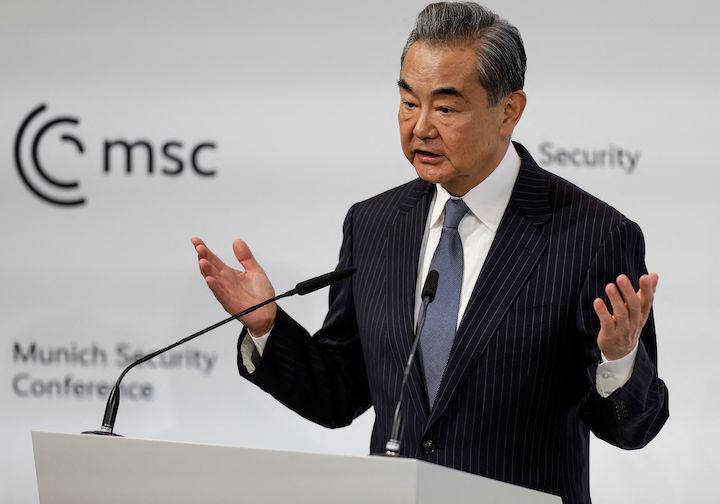At the Munich Security Conference over the weekend, China’s foreign minister Wang Yi announced that his country was currently in consultations with ‘our friends in Europe’ over the framework of a peace proposal for Ukraine. It is to be laid out in full by President Xi Jinping on the first anniversary of Vladimir Putin’s invasion – 24 February. Beijing’s peace initiative would, said Wang, underscore the ‘need to uphold the principles of sovereignty, territorial integrity and the UN Charter’ but at the same time ‘respect [the] legitimate security interests of Russia’.
On the face of it, it appears that Beijing is not saying anything new. Furthermore, both German Chancellor Olaf Scholz and French President Emmanuel Macron made it clear at the conference that there was no support for early peace talks and warned that the war would be a prolonged struggle. And yet China’s intervention is critically important to the conflict’s final outcome, not least because even a defeated Russia will remain powerful and dangerous unless Beijing steps in as both a guarantor of its security and a restraining hand on any future aggression.

Get Britain's best politics newsletters
Register to get The Spectator's insight and opinion straight to your inbox. You can then read two free articles each week.
Already a subscriber? Log in







Comments
Join the debate for just £1 a month
Be part of the conversation with other Spectator readers by getting your first three months for £3.
UNLOCK ACCESS Just £1 a monthAlready a subscriber? Log in